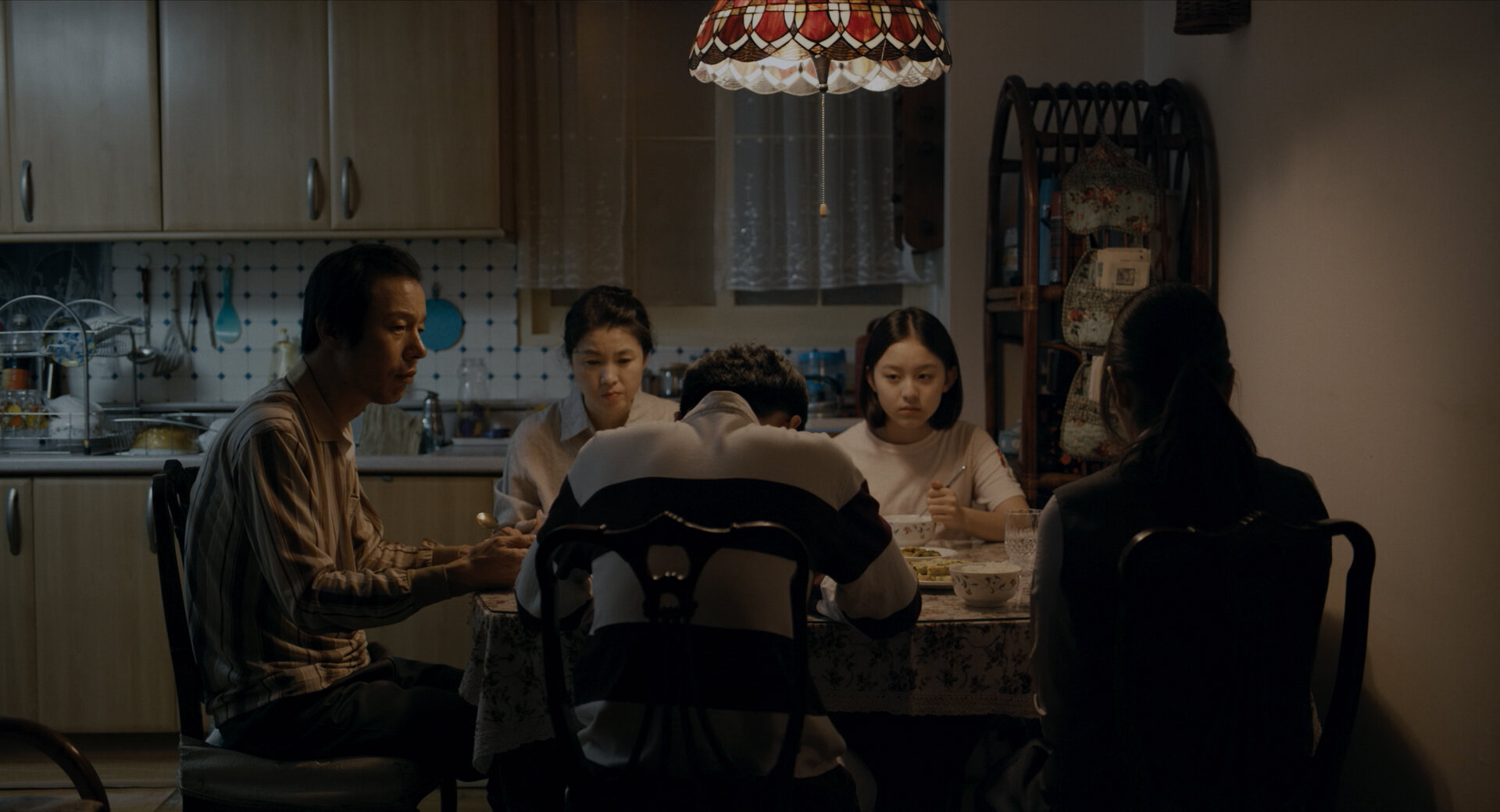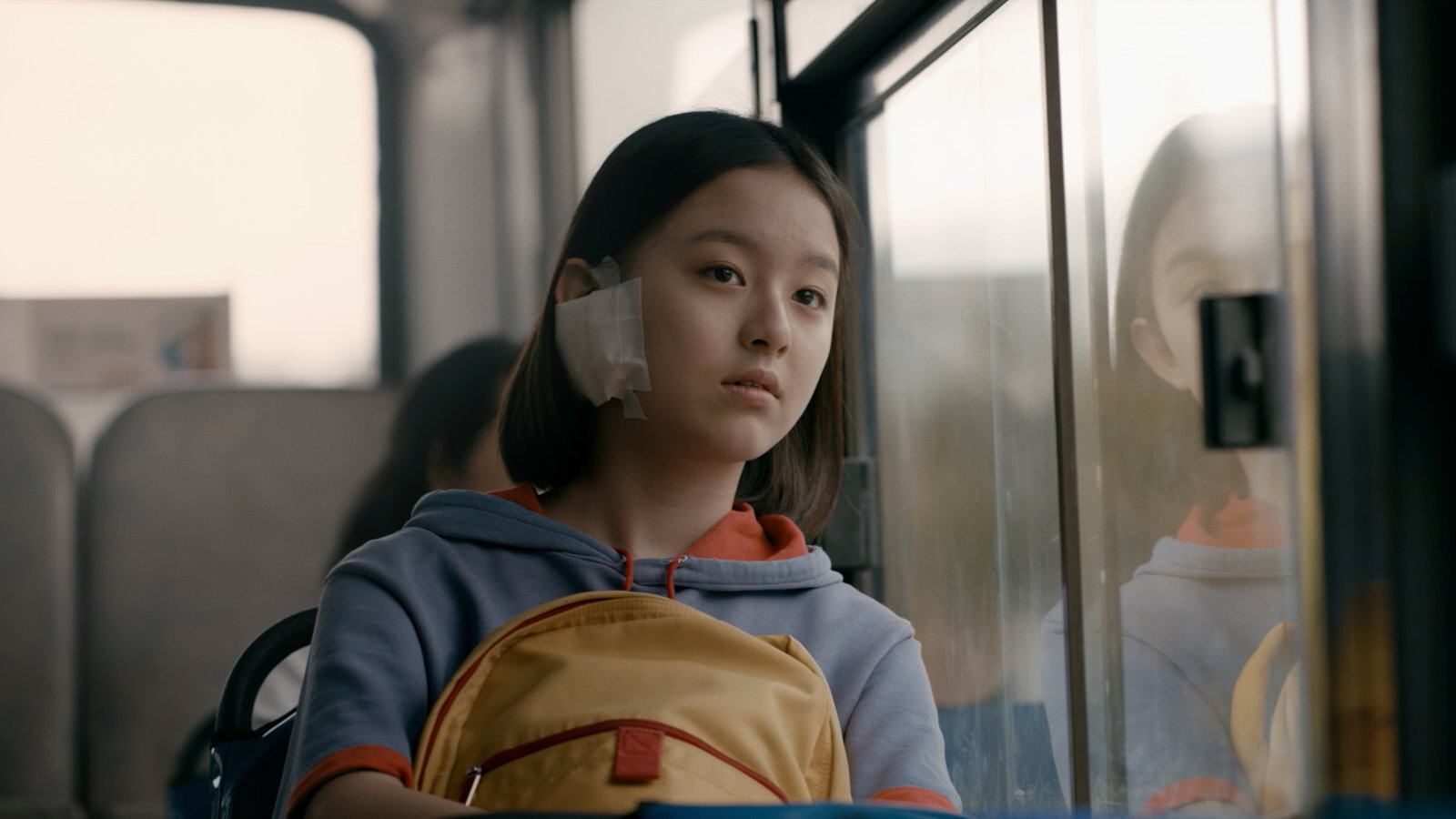House of Hummingbird (2020): You Can’t Go Home Again
By Nick Sansone
As we (thankfully) approach the end of the year 2020, one of the many ways that the COVID-19 pandemic has upended my life has been through its effect on the film industry. Considering that this is the time of year when I would normally be starting to go see the year’s major Oscar contenders in my favorite arthouse movie theaters in Chicago, it is very strange and sad to realize that I haven’t seen nearly as many new films as I normally would by this point in the year. And while there have been some great new films released on streaming services this year (among them Shirley (2020), The Vast of Night (2020), and The Social Dilemma (2020)), in general the crop of new releases has been unusually slim, and the vast nature of streaming services makes it much more difficult for smaller and more challenging films to break out and reach a wide audience.
These circumstances only made it more surprising and delightful when I discovered first-time writer/director Bora Kim’s new film House of Hummingbird (2020), a quietly powerful and beautifully crafted coming-of-age drama partly based on her own adolescence in South Korea. Reminiscent of both Eighth Grade (2018) and Roma (2018) while tackling similar class issues in South Korea that Parasite (2019) did so brilliantly last year, this film nevertheless manages to stand on its own thanks to the exquisitely-constructed screenplay and immersive direction by Kim as well as the lead performance by Ji-hoo Park, who quite literally carries the film on her small shoulders. This is undoubtedly the best film I’ve seen in 2020, and I’m not sure if anything else will top it for me.
The film takes place in 1994 Seoul, a time of rapid change in the landscape of the city and the country. When we first see the film’s protagonist, eighth grader Eun-hee (Ji-hoo Park), she is banging on the door to her family’s apartment, repeatedly shouting for her mother to open the door to no avail. Without making it obvious, this opening scene establishes the type of treatment Eun-hee endures from her family, friends, and classmates on a daily basis. Her parents (Lee Seungyeon and Jeong In-gi) and sister (Bak Suyeon) ignore her, her older brother (Son Sangyeon) abuses her, and most of her classmates mock her for being poor. Even her boyfriend, a nice affable boy named Ji-wan (Yoon-seo Jeong), doesn’t seem one-hundred percent committed. Things begin to change slightly when Eun-hee begins a Chinese class and befriends both her classmate Ji-sook (Seo-yoon Park) and her teacher Ms. Kim (Sae-hyuk Kim), who quickly becomes a surrogate mother to Eun-hee and the only adult in her life who really understands her.
But even as others around her begin to notice and even understand her, the day-to-day realities of Eun-hee’s life begin to worsen. A lump behind her right ear turns out to be significant health concern that requires surgery which her parents barely offer any support with. Her friendship with Ji-sook effectively ends with an aborted attempt at shoplifting in which Ji-sook betrays Eun-hee. Her relationship with Ji-wan ends when she learns his mother disapproves of her. And another girl named Yuri (Hye-in Seol), who had given Eun-hee borderline-romantic attention, ends their friendship for no apparent reason. And meanwhile, the world around Eun-hee is rapidly changing, as gentrification is beginning to sweep through Seoul, North Korean dictator Kim Il-sung dies, and a tragic accident occurs that changes everything for both Eun-hee and the world around her.
And while most of these plot points may sound typical for a coming-of-age film, the reality is that House of Hummingbird (2020) is a special coming-of-age film. Knowing that this is Bora Kim’s first feature film makes it all the more special, as she directs this film with a level of confidence, maturity and empathy that helps her rise above many more experienced filmmakers. And although it is very specific to both its setting and its time period, this is about as universal a story as you can get in regard to its depiction of a tumultuous adolescence and the loneliness and isolation that comes with it. Anyone who has ever felt isolated in their preteen and teenage years will be able to relate to Eun-hee on some level.
There are so many brilliant things that Kim does here, but among the most impactful is how she fuses the personal with the sociopolitical in a way that never feels forced or preachy. While this is something that many filmmakers have effectively done (including Alfonso Cuarón in Roma (2018)), it is particularly powerful here as the landscape around Eun-hee in many ways mirrors her own psyche. Just as her city and country are rapidly changing, she herself is going through some of the most significant changes in her young life. In one particularly poignant scene, Eun-hee asks her teacher Ms. Kim about protest signs outside of a housing project, and Ms. Kim explains how they are protesting a planned demolition of the project, which would effectively displace many impoverished people and leave them homeless. While on the surface level Ms. Kim is teaching Eun-hee about gentrification, this conversation also serves as a parallel for Eun-hee’s own loss of innocence, for how all of these things happening in her life are forcing her out of where she has been comfortable and leaving her lost and confused. She knows she will never again be able to go back to her more innocent stage of life, and is now left to find her way forward.
Another key element that Kim employs here is a strong sense of empathy for all of the characters unseen in most coming-of-age films. Although everything in this film is exclusively seen through Eun-hee’s eyes, none of the characters comes off as a one-dimensional cartoon; rather, even the people who wrong Eun-hee are generally seen as victims of circumstance or past hurts or just plain youthful immaturity. This is especially true in the case of Ji-sook, Eun-hee’s friend who betrays her during shoplifting, as she also takes horrific physical abuse from her brother and fears for her own physical safety as much Eun-hee does for hers. But perhaps the boldest and most impressive use of empathy here is for Eun-hee’s father and brother, who are very much seen as emblematic of a patriarchal society that puts immense pressure on men to succeed and lead their families without showing any emotion. While the film never excuses their abusive and toxic behavior, it at least shows you how toxic masculinity is allowed to fester in this society and manifest itself in cruel and despicable ways.
Adding immensely to the emotional impact of the film is Kim’s steady pacing and use of silence, which is equal parts unsettling and engaging at various moments. This is a very quiet film, and although the minimalistic ambient score only reveals itself at certain key moments that I won’t dare spoil, it is the film’s quietest moments that often pack the biggest punch. Some of these moments, such as a dinner scene late in the film and another that happens shortly afterward, are a beautiful, poetic testament to the power of a minimal soundscape and earning genuine emotion from the writing and the performances.
But ultimately there is one reason this film is as beautiful and powerful as it is, and that is Ji-hoo Park. Her performance as Eun-hee is an incredible breakthrough, one that deserves to make her an international star. She carries this movie with a delicacy and grace and emotional honesty that is astonishing. And as hard as it may be to watch her character go through trial after trial and get beaten down both literally and figuratively, Park’s performance is of such a high caliber that it becomes impossible to look away. And it also becomes all the more wonderful when she gets tender, quiet moments like those when she bonds with Ms. Kim or beautiful cathartic moments like one when she puts on music and dances alone in her living room, unleashing every emotion she has felt for the preceding two hours of the film in one solitary dance. There’s never a false note in her performance, and I cannot wait to see where this young actress goes from here.
And although the supporting players don’t get many showcase moments, that doesn’t mean their work is any less notable. Sae-hyuk Kim is especially impressive as Ms. Kim, providing much-needed warmth to Eun-hee’s emotional journey and never appearing cliche or condescending in her “inspirational teacher” role. And Jeong In-gi and Son Sangyeon are eerily convincing as her father and brother, never coming off as tone-deaf and selling their emotional breakdown moments with an impressive balance that never excuses their characters’ behavior but allows the audience to see the pain and pressure they’re experiencing.
And none of this is even mentioning the film’s note-perfect cinematography and use of mise en scène, both of which play a crucial role in taking the audience on Eun-hee’s emotional journey and allowing them a clear-eyed picture of South Korean society in 1994. While I’m aware that a quiet, emotionally-heavy foreign-language drama that runs for two hours and eighteen minutes might be a turn-off to some, this is an exquisite, near-perfect film that needs to be seen and supported by everyone (it is currently available to rent on-demand for $3.99). In a year in which both new films and empathy are in short supply, here is a film that, if nothing else, should help to remind people that we are much more alike than we are different. There is a Eun-hee in all of us who has been beaten down by life and is struggling to feel accepted and loved and cared for. If nothing else can unite us, perhaps her journey can.
Nick Sansone is a writer and aspiring filmmaker from Chicago. A recent summa cum laude graduate of DePaul University’s School of Cinematic Arts, he continues to study film independently and has appeared on different radio programs in the Chicagoland area to discuss contemporary cinema and the Academy Awards.






